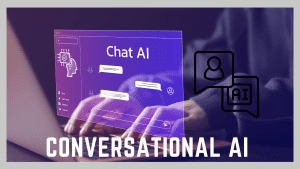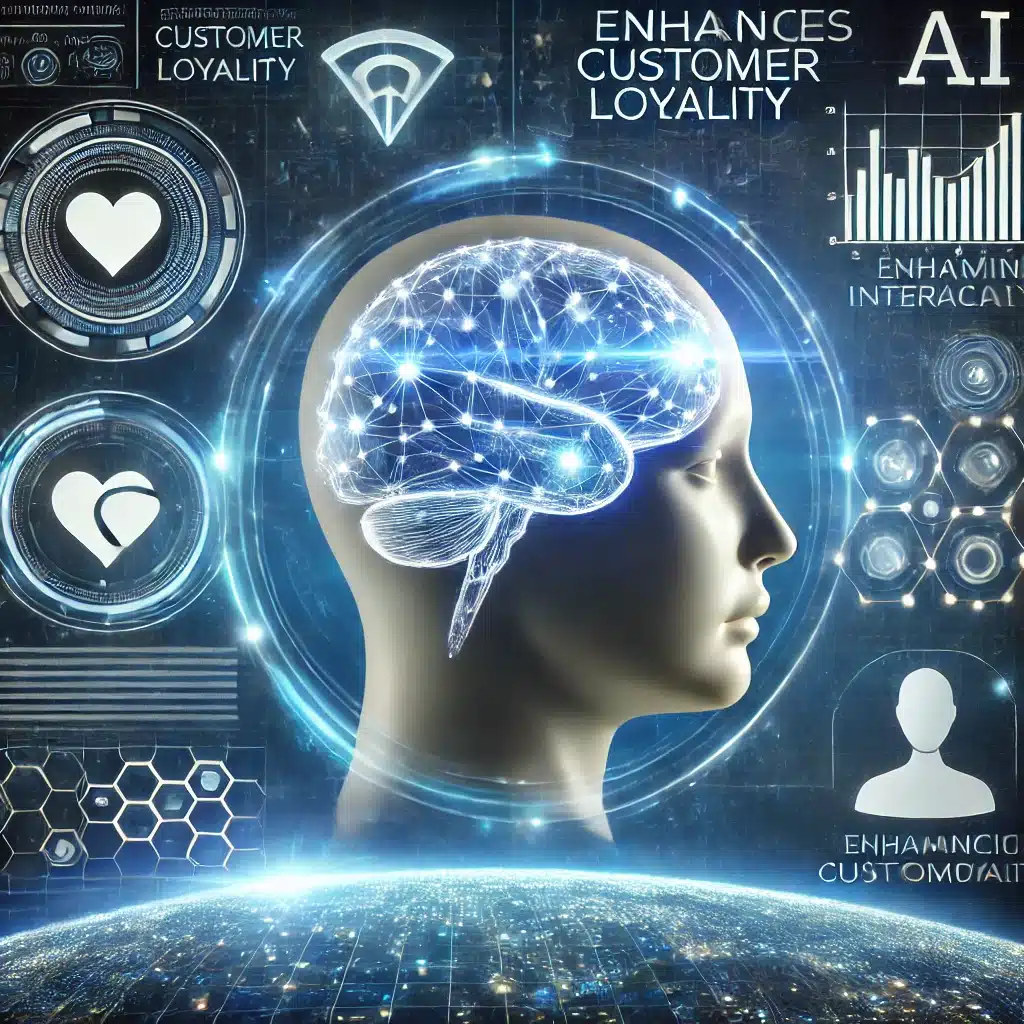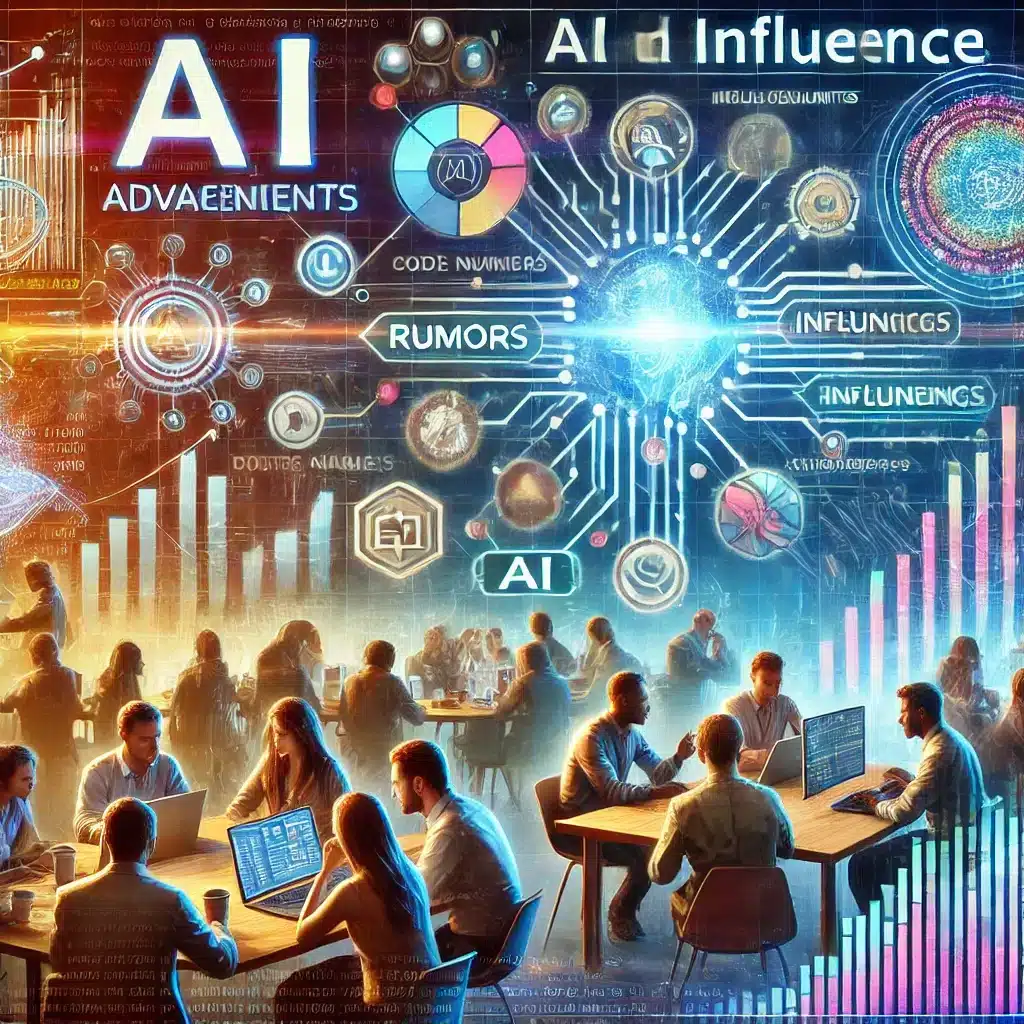Welcome to the future of sales! In 2024, the integration of Conversational AI in sales processes has revolutionized the way businesses interact with their prospects and customers. Conversational AI for sales isn’t just a buzzword; it’s a transformative technology reshaping the sales landscape. By leveraging AI-powered chatbots and virtual assistants, sales teams can automate routine tasks, improve customer engagement, and optimize the entire sales funnel. Let’s dive into how this innovative technology is changing the game.
What is Conversational AI for Sales?
How does Conversational AI work?
Conversational AI for sales harnesses the power of artificial intelligence, machine learning, and natural language processing to create human-like conversations with customers. These advanced systems can understand, interpret, and respond to customer queries in real-time, making interactions seamless and efficient. AI chatbots, for instance, can simulate human-like interactions by analyzing the context and sentiment of messages, allowing them to provide accurate and helpful responses.
What are the benefits of using Conversational AI in sales?
The benefits of using conversational AI in sales are immense. For starters, AI chatbots can handle multiple customer interactions simultaneously, which significantly reduces wait times and enhances customer satisfaction. Sales teams can also use conversational AI to automate repetitive tasks, freeing up sales reps to focus on high-value activities such as relationship-building and strategic planning. Moreover, AI technology can analyze vast amounts of data to provide personalized experience to potential customers, thereby increasing their engagement and the likelihood of conversion.
Are there any limitations of Conversational AI in sales?
Despite its numerous benefits, conversational AI for sales is not without limitations. While AI chatbots and virtual assistants are proficient at automating routine tasks and answering common queries, they may struggle with complex situations that require human intuition and emotional intelligence. Additionally, technical issues such as natural language understanding errors can sometimes result in misinterpretation of customer queries. Therefore, it’s crucial for businesses to continuously monitor and refine their AI systems to ensure optimal performance.
How Can Sales Teams Automate Routine Tasks Using Conversational AI?
What sales tasks can be automated by AI-powered chatbots?
Sales teams can greatly benefit from using AI-powered chatbots to automate a variety of routine tasks. These include lead generation, managing follow-up communications, scheduling sales calls, and even conducting initial prospect outreach. For example, an AI chatbot can automatically respond to inquiries submitted via a website’s contact form, ensuring that potential customers receive timely and relevant information without needing manual intervention from a sales rep.
How do virtual assistants help in sales automation?
Virtual assistants, powered by conversational AI, play a vital role in sales automation by handling administrative tasks. They can update CRM systems, track prospect interactions, and manage data entry, which helps sales representatives stay organized and focused on closing deals. These assistants can also provide real-time insights and recommendations based on data analysis, assisting sales managers in making informed decisions. Ultimately, the use of AI tools enables a more efficient and streamlined sales process.
What is the impact of AI technology on the sales process?
The impact of AI technology on the sales process is profound. By automating routine and repetitive tasks, sales teams can increase their productivity and effectiveness. AI-powered systems can analyze customer data to identify trends and preferences, allowing sales strategies to be tailored to meet specific needs. The integration of AI in sales also enhances the accuracy of lead qualification, ensuring that reps spend their time on prospects with the highest potential for conversion. This optimization leads to shorter sales cycles, increased revenue, and improved customer satisfaction.
How Does Conversational AI Improve Customer Interactions?
How can AI chatbots personalize customer interactions?
AI chatbots can significantly personalize customer interactions by analyzing user data and behavior. With machine learning algorithms, chatbots can identify preferences, purchase history, and browsing patterns, allowing them to tailor their responses to individual customers. This level of personalization makes interactions feel more human-like and relevant, enhancing customer engagement and building stronger relationships. By providing personalized recommendations and solutions, AI chatbots increase the likelihood of successful sales.
What is the role of natural language processing in improving customer experience?
Natural language processing (NLP) is at the heart of conversational AI, enabling chatbots to understand and respond to human language accurately. NLP helps AI systems interpret the nuances of customer queries, such as tone and context, allowing for more meaningful and contextually appropriate responses. This capability improves the overall customer experience by ensuring that interactions are smooth and effective. As NLP technology continues to evolve, the ability of AI chatbots to engage in natural, human-like conversations will only improve.
How does AI handle customer queries effectively?
AI handles customer queries effectively by leveraging vast amounts of data and advanced algorithms to provide accurate and timely responses. AI chatbots can quickly access information from knowledge bases, CRM systems, and other sources to answer queries. Additionally, they can route complex issues to human agents when necessary, ensuring that customers receive the best possible support. The ability of AI to learn from interactions also means that chatbots can continuously improve their performance, leading to more efficient and satisfactory customer support.
What are the Use Cases of Conversational AI in B2B Sales?
How can Conversational AI assist in lead qualification?
In B2B sales, conversational AI is a game-changer for lead qualification. AI chatbots can engage with potential customers to gather information about their needs and interests. By analyzing this data in real-time, the chatbots can determine the quality of leads and prioritize them accordingly. This automated lead qualification process ensures that sales reps focus on prospects with the highest conversion potential, making the sales process more efficient and effective.
What are some real-world applications of AI chatbots in B2B sales?
There are several real-world applications of AI chatbots in B2B sales. For instance, chatbots can be used to schedule meetings between sales reps and prospects, automate follow-up emails, and provide instant support on product inquiries. Additionally, AI chatbots can assist in nurturing leads by delivering personalized content and drip campaigns based on the prospect’s behavior and stage in the sales funnel. These applications not only enhance efficiency but also improve the overall effectiveness of B2B sales strategies.
How does AI optimize the sales funnel in B2B sales?
AI plays a crucial role in optimizing the sales funnel in B2B sales by analyzing data to identify bottlenecks and opportunities for improvement. AI-powered tools can track the progress of leads through the funnel and provide insights on which stages require attention. By automating repetitive tasks and providing actionable insights, AI helps streamline the sales process, reducing the time it takes to convert leads into customers. This optimization ultimately leads to higher conversion rates and increased revenue for B2B businesses.
How to Implement Conversational AI Tools in Sales and Marketing Processes?
What are the steps to integrate AI-powered chatbots in sales and marketing?
Integrating AI-powered chatbots in sales and marketing involves several key steps. First, businesses need to identify the specific tasks and processes that can benefit from automation. Next, they should select the right chatbot platform that meets their requirements. Once the chatbot is developed, it’s crucial to train it using relevant data to ensure it can handle customer interactions effectively. Finally, businesses must continuously monitor and refine the chatbot’s performance to ensure it delivers optimal results and aligns with their sales and marketing objectives.
What skills are required for a sales team to use conversational AI tools?
To effectively use conversational AI tools, sales teams need a combination of technical and soft skills. On the technical side, understanding how to configure and manage AI systems is essential. Sales reps should also be comfortable analyzing data and using AI-generated insights to inform their strategies. Soft skills such as adaptability, communication, and customer-centric thinking are equally important. These skills help sales reps personalize their approach and make the most of the AI tools at their disposal, ultimately improving customer interactions and sales outcomes.
How can businesses evaluate the performance of conversational AI tools?
Evaluating the performance of conversational AI tools involves tracking a variety of metrics and KPIs. Businesses should monitor metrics such as response time, customer satisfaction scores, and conversion rates to gauge the effectiveness of their AI chatbots. Additionally, analyzing the accuracy of AI responses and the number of successful query resolutions can help identify areas for improvement. Regularly reviewing these metrics allows businesses to fine-tune their AI systems, ensuring they continue to provide value and support the overall sales and marketing strategy.
Frequently asked questions
Q: What is Conversational AI and how does it revolutionize sales in 2024?
A: Conversational AI refers to the use of artificial intelligence to create chatbots and virtual assistants that mimic human conversation. In 2024, it revolutionizes sales by automating and enhancing different sales processes, improving customer interaction, and making sales conversations more efficient.
Q: How can AI chatbots help businesses improve customer service and sales?
A: AI chatbots help businesses by providing instant responses to customer inquiries, automating routine tasks, and ensuring 24/7 availability. This boosts sales productivity and enhances customer satisfaction, leading to higher sales and customer retention.
Q: What are the main benefits of using ai in b2b sales and marketing?
A: Using AI in B2B sales and marketing offers numerous benefits, including personalized sales conversations, automated lead generation, predictive sales analytics, and enhanced targeting. This helps in driving more effective sales and improving overall sales efforts.
Q: Can AI bots handle complex customer queries?
A: Yes, AI bots are increasingly capable of handling complex customer queries. Using advanced natural language processing and machine learning, these AI bots can understand and respond to intricate questions, providing valuable support in sales and customer service.
Q: How does conversational ai technology boost sales productivity?
A: Conversational AI technology boosts sales productivity by automating repetitive tasks, allowing sales teams to focus on high-value activities. It also provides real-time insights and recommendations based on customer interactions, speeding up the sales process.
Q: What role does sales training play when using ai chatbots?
A: Sales training is crucial when using AI chatbots as it helps sales teams understand how to effectively integrate these tools into their workflow. Training ensures that teams can leverage AI to enhance their sales efforts and deliver better customer experiences.
Q: How can businesses automate sales using ai?
A: Businesses can automate sales using AI by employing chatbots for lead qualification, customer follow-ups, and personalized product recommendations. AI can handle mundane tasks, allowing sales teams to focus on more strategic activities, thereby increasing efficiency.
Q: What are the best ai chatbots for sales and customer service in 2024?
A: In 2024, some of the best AI chatbots for sales and customer service include advanced platforms like Drift, Intercom, and HubSpot. These tools offer powerful conversational AI features that automate tasks, drive engagement, and improve overall customer service.
Q: How can conversational ai analyze sales conversation to improve outcomes?
A: Conversational AI can analyze sales conversations by evaluating customer interactions, identifying patterns, and providing insights into customer behavior. This data helps in refining sales strategies, personalizing outreach, and improving overall sales enablement.
Q: What should companies keep in mind when integrating conversational ai into sales and customer service?
A: Companies should ensure that the conversational AI aligns with their sales and customer service goals, provides a seamless user experience, and includes regular updates and maintenance. It’s also essential to train teams on how to leverage AI for effective sales and customer engagement.





